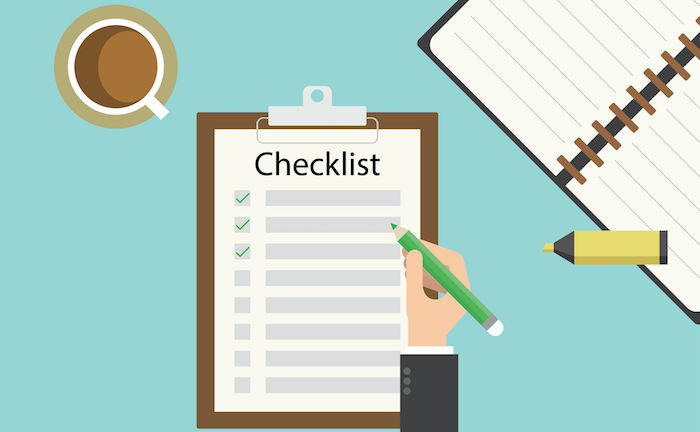What you should consider before you agree to be responsible for an incapacitated loved one

What you should consider before you agree to be responsible for an incapacitated loved one
If you haven’t had any experience with guardianship for adults with dementia, it’s likely you don’t understand just how complex it is. You are not alone. Many family members of the estimated 6.5 million dementia patients in the U.S. struggle to understand if it is an option for their loved one.
Many more people will face that decision because the number of people with dementia will grow to 14 million by 2060, according to Centers for Disease Control estimates.

The simplest definition of guardianship is the position of being responsible for someone else. State courts appoint a guardian to make decisions for another person if the court finds the person to be incapacitated or unable to make safe, reasonable decisions for themselves, according to National Academy of Elder Law Attorneys (NAELA).
The simplest definition of guardianship is the position of being responsible for someone else.
Guardianship is serious business. People placed under guardianship, who are called wards, may lose their independence in making decisions about their finances, legal issues and health care. According to the U.S. Department of Justice, full guardianship can control whether wards can vote, who they may marry, where they live and if they can make end-of-life decisions for themselves.
An article in the American Journal of Alzheimer’s Disease and Other Dementias explains that the two tasks that are regularly evaluated in determining capacity are an individual’s ability to manage personal finances and take medications as prescribed.
Choosing and Monitoring Guardians
In determining whether to place someone under a guardianship and curb their legal rights, the court may call on a geriatrician or psychiatrist to assess the person’s functional behavior, cognitive function, disabling conditions and ability to meet their essential needs. A geriatrician is a specialty doctor who treats people over 65 with a focus on diseases like dementia that primarily affect this age group.
The National Academy of Elder Law Attorneys says guardianships offer safeguards. Guardians, for example, must periodically update the court on the ward’s finances and health status. Even then, courts have the authority to initiate unscheduled reviews of guardians’ decisions about their wards’ finances, property and health care.
Guardianship, “when properly used,” is a beneficial method to protect an incapacitated person for whom no other means are available to assist with informed decision making, the organization says.
That describes the original intent of guardianship, but it assumes the guardian is honest and accountable. Unfortunately, this is not always the case. Ample examples of abuse are documented by researchers and prosecutors.
An article in the Journal of the American Geriatrics Society first published in April 2022, sought to make a quantitative evaluation of guardianship in the United States but the authors found little consistent standards and data collection regarding the impact on patient care and the quality of life of people subject to guardianship.
Impediments to Oversight
The inconsistencies included fundamental matters, including the following:
- The scope of the guardian’s duties.
- Minimum standards for guardians. As of 2020, there were two states that had yet to require a background check.
- Determination of incapacity. In the past, this decision often defaulted to a physician based solely on a psychiatric or medical diagnosis.
- Regular independent reviews of the ongoing necessity of guardianship.
- Educational requirements for guardians. Guardians are often required to serve in many roles that they may have minimal or no training. The National Guardianship Association (NGF) partnered with the Center for Guardianship Certification (CGC) to standardized educational content and offer certification.
- Other drawbacks of guardianship included:
- Once guardianship is assigned, there is greater tendency for the person to become lost to follow up. People who have been labeled as incompetent or incapacitated have limited ability to advocate for themselves, contact an attorney or access funds for court proceedings.
- There is a greater tendency to assign full guardianship instead of less restrictive alternatives.
Recent Guardianship Law
In 2017, the Uniform Law Commission, a non-profit association that provides states with model legislation to clarify and standardize laws across jurisdictions , released The Uniform Guardianship Conservatorship and Other Protective Arrangements Act to encourage the “trend toward greater independence for persons under guardianship.”
“Over 40% of the American population has never discussed their wishes for end-of-life care with loved ones.”
The act addresses many of the previous inconsistences and proposes solutions going forward. So far, seven states have enacted the model guardianship statute in full and many more have adopted parts of it, according to the National Center on Elder Abuse.
Alternatives to Guardianship
There are multiple alternatives to guardianship but Americans need to start talking to each other. “Over 40% of the American population has never discussed their wishes for end-of-life care with loved ones,” according to the article in the Journal of the American Geriatrics Society. These measures should begin at the first sign of memory loss or preferably when getting ready for retirement to delay or prevent guardianship.
- Tell your family your wishes and write them down in an advanced directive (living will and health care power of attorney).
- Create a value history. A value history is based on values and beliefs and it provides a person’s future care choices.
- Evaluate limited (partial) guardianship as an alternative to full guardianship. In this case, guardianship is granted only over the areas for which the person lacks the capacity for rational decision making (finances).
- Designate a durable power of attorney and list two or three backup candidates for this important position if the first choice is not available. This agent could be responsible for financial, legal and personal matters.
- Investigate care management services. Care managers are usually nurses or social workers that are trained to identify and provide for a client’s medical, psychosocial and financial needs.
- Find a payee. Many organizations offer money management services which serve as a payee for vulnerable clients.
- Enlist the help of your primary care doctor. You may have to teach them about guardianship and the role you would like them to play, but they could become your greatest asset.
Guardianship as the Only Answer
Appointing a family member or friend as your guardian often is the ideal solution. But sometimes a court-appointed guardian is the only answer. My own experience is an example.
I felt a sense of relief at the appointment of a guardian outside the family. It relieved us of the possibility of having to tell him that he had to stay in a nursing home for his own safety.
My father was diagnosed with multi-infarct dementia in 2016. The disease transfigured him from an intelligent, robust, fun-loving father into, let’s say, something different. My mother already had passed away, and my three siblings and I agreed that his guardian should be the same sibling who was listed as his Health Care Power of Attorney.
That legal document lets you state your medical wishes and appoint another person to make sure those wishes are followed if you are incompetent or no longer able to make your own health care decisions.
Release, Then Relief
We all arrived at the courthouse and my father surprised all of us by saying he didn’t want my sister, who had his Health Care Power of Attorney, to be his guardian. Another court hearing was scheduled, at which he agreed to have the court appoint a lawyer to be his guardian.
I felt a sense of relief at the appointment of a guardian outside the family. It relieved us of the possibility of having to tell him that he had to stay in a nursing home for his own safety. We would not be the ones sifting through his financial records to explain his debt and explain that his mortgage was being foreclosed on. We could preserve a few remnants of a familial relationship and focus on being supportive.
The guardianship duties performed by the appointed attorney were far from flawless. But, overall, they served as the best answer for the situation at the time.
Complete Article ↪HERE↩!






